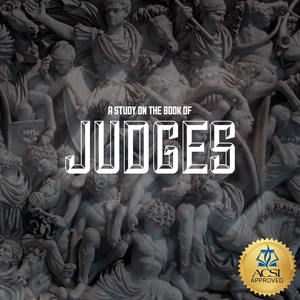What action should Christians take in the course of global disasters, eg. COVID-19 (2020)?
I want to address briefly the ongoing health crisis, the Coronavirus. Now why am I bringing this up? Well, first of all, let me begin by making a preface statement here. You don't normally hear me talk about current events. In fact, it is my policy never to include comments about current events or politics or culture, in the Bible teaching that I do. And here's why…because my opinion is absolutely worthless. You know the old saying about opinions – everybody's got one. And I don't have any opinion better than yours.
If you came to my church the day after the tsunami of 2012, I didn't talk about it. The day after the financial crisis of 2008. I didn't talk about it. Why? Because it comes, and it goes. And because there'll be another one next month – disaster, tragedy, something. The world is filled with them, always has been. But that’s not eternal. That's not what we're here to talk about. So, my approach has always been that if anything comes out of my mouth, it’s all worthwhile – only because it's what the Bible says. And in most cases, the things that go on outside this building from one year to the next, one day to the next, are not relevant to the Bible. They’re not telling you anything about Jesus. They're just the reality of a sinful world.
The idea that there could be some disease that races across the planet and affects millions of people is not particularly unique. World War One killed 40 million people. World War Two killed 75 million people. The Spanish Flu in 1918 killed 50 million people. The Black Plague lasted for 20 years and killed 200 million people. Half of Europe died under that one. And if you just look in our recent history, the last 150 years, there have been over half a dozen flu events, each of which killed over a million people in the US. What's my point? Well, there's nothing especially new or surprising or different about an outbreak of disease in our world.
The Bible makes it clear that this is to be considered the norm. When Adam sinned, the Lord told him it would bring into the world devastating consequences including a continual deterioration of the human body and a continual deterioration of our world until such time as God replaces it with a new one. And the last 6000 years of human history proves this to be exactly true.
Importantly, the Christian is not immune from this stuff. Your faith does not make you invincible. You're not going to escape tragedy simply because you get to go to heaven after it's over. Now, this may not sound like a reassuring pep talk, but the point is, if you're a Christian worried about dying because of the events of the news, you're worried about the wrong thing. Let me clarify any mystery or doubt about this…You are going to die. Now, maybe it's going to be the coronavirus or maybe you're going to choke on your latte or maybe a bus is going to hit you.
I'm not trying to make light of this. I realize that death, when it happens, whoever it happens to, is hard. What I'm trying to say is that as Christians we know that our death will lead to something better, infinitely better. This world is as bad as it's ever going to be for you. The next life is what you wait for.
So as the world panics, what should be our focus? Here's my suggestion: maintain a Christ-honoring testimony. Don't worry about dying, worry about how you're living.
As Paul says in Philippians
Phil 1:20 according to my earnest expectation and hope, that I will not be put to shame in anything, but that with all boldness, Christ will even now, as always, be exalted in my body, whether by life or by death.
Phil 1:21 For to me, to live is Christ and to die is gain.
Paul was sitting in a prison, contemplating his own death when he wrote those words. He says, I want to exalt Christ with my body, whether I'm living or whether I'm going into death. In other words, as long as he lived, his life was for Christ. He wanted to glorify Christ. And then Paul goes on to say, but death when it comes for me, death is gain. That is, I move out of this life and into the next where I receive a reward for what I've done for Christ in this life. It's a win-win: living brought glory to Christ, dying brought reward to Paul. There's your Christian perspective.
So, we don’t know the impact this virus will have, but keep in mind the world out there is fearful because they don't know the Lord. And fear of death is a tool that the enemy uses to enslave humanity. Hebrews Chapter two tells us this. As Christians, we can't succumb to that same fear because when we do that, we lose the distinction that is supposed to exist between us and those who don't know Jesus. So as Peter said, when we sanctify Christ in our hearts we’ll be ready to make a defense for that hope that is in us. When someone asks looks at you and says, why aren't you panicking like everybody else? Why aren't you worried like everyone else? Bingo. That's the moment you've been living for.
Now, in light of having that mentality of a Christian outlook, is it right or wrong for a Christian to be making preparations/stocking up for disasters of this kind? Do we store up food or medicine etc., or should we just depend on God and not worry about those things and expect him to provide in the midst of whatever comes. Well, biblically speaking, the answer is yes. Because either one is biblically correct. And you see that in the story of Joseph.
Let me summarize Genesis 37-48: You have the story of Joseph, who was sold into captivity in Egypt by his brothers. After a time he rises up to the position of second in charge of Egypt under the Pharaoh. And in the course of that work, God gives Pharaoh a dream, which Joseph interprets, and it tells Joseph that he has to be prepared for a coming world disaster – a famine. In order to prepare, God tells Joseph to store up for seven years, and that's what Joseph does, storing up food available for all of Egypt and beyond. Meanwhile, Joseph’s father, Jacob was back in Canaan with the rest of the family. The famine affects Canaan also, but they didn't store up food. They don't do anything to prepare. And what happens then when the famine hits? Well, Jacob has nothing so goes to Egypt and finds his supply there with what Joseph provides. Now remember, Jacob doesn't know his son is there, so he's going to a land that has historically been an enemy of the Hebrews and of Canaan, seeking support during the time of the famine.
So here's the lesson for us. You can be Joseph, or you can be Jacob. Either one is fine. If you want to be Joseph, and you want to store up for a preparation of this coming disaster, then do it. But here's the thing…if you're going to be like Joseph, you need to be prepared to share what you store up with those who need it.
On the other hand, you say, I don't want to bother with the expense or the trouble of storing up right now. That's not me. Well, then fine. Be Jacob. But if you're going to do that, then you need to be prepared to seek help when the time comes, if it comes from strangers or maybe even from your enemies. Because when those moments come, God will put people together for the sake of turning what is bad into something good, as he did with Jacob, and Joseph.
And if you're the kind to store up out of fear or selfishness, then when the time comes to share it, and you don't, you're actually going contrary to what God intended by giving you the instinct to store up in the first place. On the other hand, if you're the kind who sits back and says, I'm gonna let God take care of this, I don't feel the need to prepare, then you need to be ready to be humble and ask for help. I won't tell you which one to do, it's up to you just to understand what comes from it.
In the meantime, keep your witness at the forefront of all of this. Watch the news but don’t freak out. That takes our witness away.
Scripture quotations taken from the (NASB®) New American Standard Bible®, Copyright © 1995, 2020 by The Lockman Foundation. Used by permission. All rights reserved. www.lockman.org







